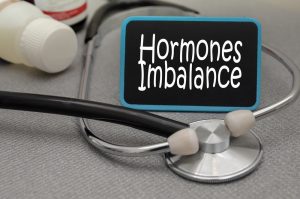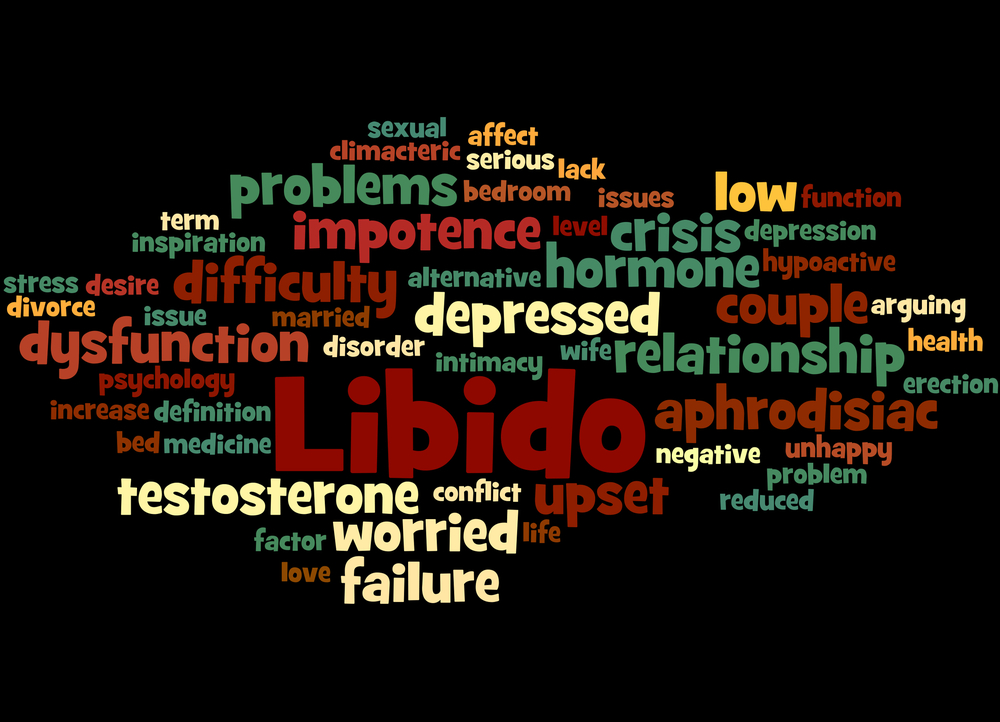Libido is a complicated thing.
And in medicine, to find solutions, determining the health problem is necessary.
We can say the same thing about our sex drives as a whole.
It’s perfectly normal to have your libido wax and wane. It’s perfectly normal for one partner to be more interested in sex than the other at any given point in time. And it’s a certainty that your flame of passion will die down the longer you stay together.
Low libido becomes a legitimate sexual dysfunction when it starts to cause relationship problems. These should be taken into consideration with your health care professional to determine if your low sex drive is clinically significant such that it requires medical attention. It should also be persistent for at least six months or more to be categorized as such.
Low libido can be abrupt or a gradual decline. Therefore, it is crucial to determine the physical and mental factors that can influence and impact desire over time. These 7 factors are essential details to consider in treating low libido.
-
Relationship problems
 Interpersonal problems have been strongly linked to lower libido in men. For instance, men whose partners suffer from low libido report more sexual health concerns than men whose partners have a healthy sex drive.
Interpersonal problems have been strongly linked to lower libido in men. For instance, men whose partners suffer from low libido report more sexual health concerns than men whose partners have a healthy sex drive.
Problems with libido have also shown a link to individuals in long-term relationships not finding their partners attractive enough. Determining where a man stands about his relationship and being honest about it is essential in helping improve his sex drive. Consulting a mental health professional or a sex therapist is an option for men with existing interpersonal problems.
-
Performance anxiety or self-esteem issues
A person’s feelings about himself play a significant role in viewing himself as a sexual entity. Men with a low self-opinion about themselves tend to report lower libido in general. This arises from self-confidence issues regarding how they view their physical bodies and how attractive they perceive themselves to be.
Often, insecurity about how they measure up to other men in the endowment department or how they measure up to societal norms about how men should act and feel. That also includes the false notion that men should want more sex, leading to performance anxiety. Men who struggle to keep their erections hard enough for both partners to enjoy sexual pleasure will often find reasons to avoid sexual intimacy and therefore report a lower libido.
-
Mental health issues
Mental health issues can significantly influence a man’s sexual desire. Studies have reinforced the notion that depression, anxiety, bipolar disease, obsessive-compulsive disorder (OCD), and eating disorders have all been linked to an increased incidence of low libido in men. Such cases may require the help of a mental health professional to work through the issues that cause issues that bleed through in the bedroom.
-
Certain prescription medications
Certain prescription medications for mental health conditions such as anxiety, depression, post-traumatic stress disorder (PTSD), OCD, and chronic pain may negatively affect libido. In particular, specific serotonin reuptake inhibitors (SSRI) and serotonin-norepinephrine reuptake inhibitors (SNRI), apart from the latter, are also linked in affecting erectile and ejaculatory function.
A host of prescription medications, such as antidepressants and anti-seizure medications, and specific cancer treatments, including opioid pain relievers, affect sex drive. Even certain over-the-counter medicines for allergies and recreational drugs such as cannabis can dampen your libido. If you are taking any particular prescription or OTC medications you suspect could be affecting your sex drive, consult your doctor. Maybe switching medications or brands or discontinuing a specific medicine may do wonders for your libido.
-
Underlying health conditions
Sex drive is often influenced by overall general health. Therefore, it’s not surprising that individuals with existing health conditions and comorbidities have been more prone to experiencing low libido.
In particular, men suffering from neurological disorders such as multiple sclerosis may experience a lower interest in sex. Chronic diseases like cardiovascular disease, kidney disease, and immune diseases like HIV may all cause lower libido. However, it isn’t yet conclusive if the lower libido stems from the health issues themselves or if the medications used to treat them cause it.
-
Hormonal imbalances
 Hormonal imbalances are often implicated in men struggling with low libido. Low testosterone is a known factor that correlates to low libido. Aging also causes a decrease in testosterone levels, particularly in older men. This may partially explain the increasing lack of interest in sex in older men. The good thing is that many of these hormonal imbalances can be easily diagnosed with a blood test–and can be addressed with a host of lifestyle changes or by taking a testosterone booster supplement (as opposed to expensive testosterone replacement therapies.)
Hormonal imbalances are often implicated in men struggling with low libido. Low testosterone is a known factor that correlates to low libido. Aging also causes a decrease in testosterone levels, particularly in older men. This may partially explain the increasing lack of interest in sex in older men. The good thing is that many of these hormonal imbalances can be easily diagnosed with a blood test–and can be addressed with a host of lifestyle changes or by taking a testosterone booster supplement (as opposed to expensive testosterone replacement therapies.)
Male UltraCore is ranked as the top natural testosterone enhancement supplement out in the market today because of its superior technology. Male UltraCore features two proprietary technologies that promote enhanced blood flow throughout the body and androgenic compounds designed to raise free testosterone levels. Male UltraCore is exclusively available at www.maleultracore.com.
-
Sociocultural practices and beliefs
Every individual is a product of their socio-cultural milieu and upbringing. Therefore, much of our upbringing determines how interested we are in sex. It’s a worthwhile exercise to understand how a person was socialized in seeing himself as a sexual being. Might there be religious beliefs that influence your point of view on sex? How about the number of sexual partners? How about monogamy? These sociocultural factors play a more significant role than most of us think and should be considered when figuring out the potential causes of low libido.
Conclusion
Low libido is a perfectly normal facet of aging in men. It shouldn’t be a cause for shame and embarrassment. That said, if a low sexual drive is bothering you and is causing you problems with your relationship, seek medical attention and consult your doctor. Low libido may be symptomatic of a more extensive underlying medical condition or a psychological issue. Many factors might be behind low libido. These seven factors are a great start in determining what is causing particularly low libido in men. It could be any one or a combination of these seven factors. Whatever is causing it, talking to a medical professional about it is the first step in treating it.



